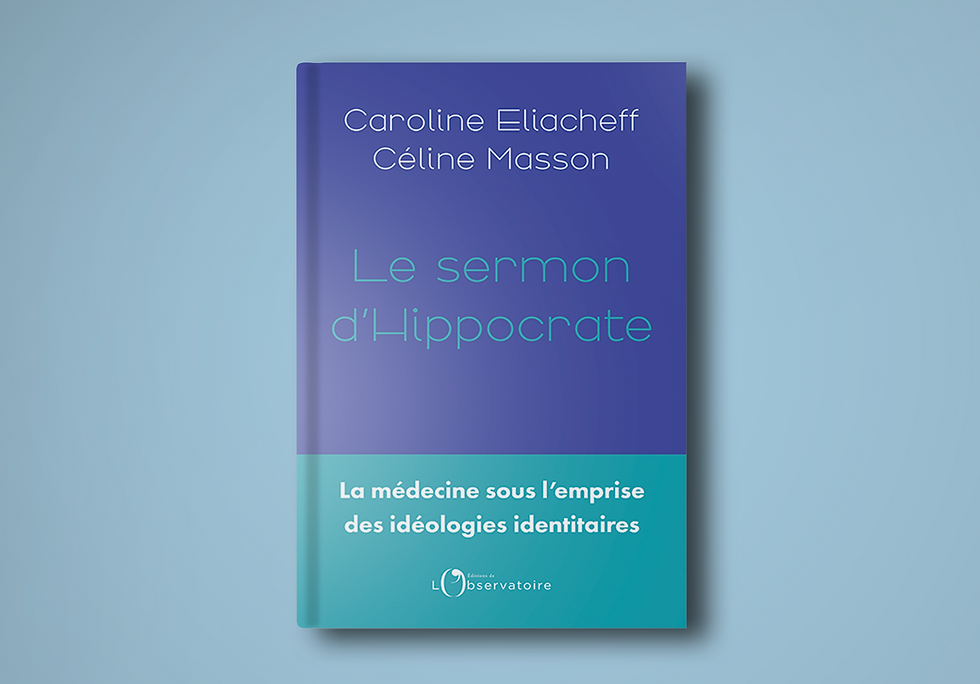Gender dysphoria: the medical world under ideological influence
Anne Lejoly and Martin Pimentel - 21 February 2025 - Causeur

Interview with Caroline Eliacheff and Céline Masson, who have published ‘Le Sermon d'Hippocrate, la Médecine sous l'Emprise des Idéologies’ (L'Observatoire)

Trad. Chat GPT - DeepL
Causeur. Your first book, La Fabrique de l'enfant transgenre, published in 2022, was well received. Why a second book?
Caroline Eliacheff and Céline Masson. We're publishing this book three years after the first, and during that time the scientific and medical controversy on the subject has continued to intensify. A lot has happened, particularly for us, since the publication of our first book. We wanted to bear witness to this. In addition, many parents and teenagers spoke to us, describing how they had been received by specialised services that work with minors questioning their gender, by Family Planning or even by militant associations. These testimonies gave us food for thought.
We also participate in an international network of professionals and researchers on the subject. Every day, we receive information: scientific articles, opinion pieces, symposia... we wanted to report on this. But our book is also about socio-historical and socio-political aspects, not just medical and psychological ones.
So you're back at it again, postulating that contemporary medical practice is influenced by identity-based ideologies. But doesn't “gender dysphoria” really exist?
We don't deny the existence of gender dysphoria, but we redefine it in the light of our clinical experience, that of our colleagues, the testimonies of parents, and also the scientific articles appearing every day that shed new light on the transidentification of minors. Thanks to this clinical experience and these testimonies, we and our colleagues have forged a new clinical proposal called ASP - Angoisse de sexuation pubertaire - (Pubertal Sex Anxiety), which enables us to better understand the psychological complexities of these teenagers, especially adolescent girls, who are unhappy with their bodies.
We note that the medical approach to minors with gender issues has been influenced by ideological currents that favor an affirmative approach to the detriment of an in-depth assessment of each situation.
We note that the medical approach to minors questioning gender has developed under the influence of ideological currents favoring a trans-affirmative approach, often to the detriment of a neutral, in-depth and rigorous assessment of each situation.
(...)


Yorumlar